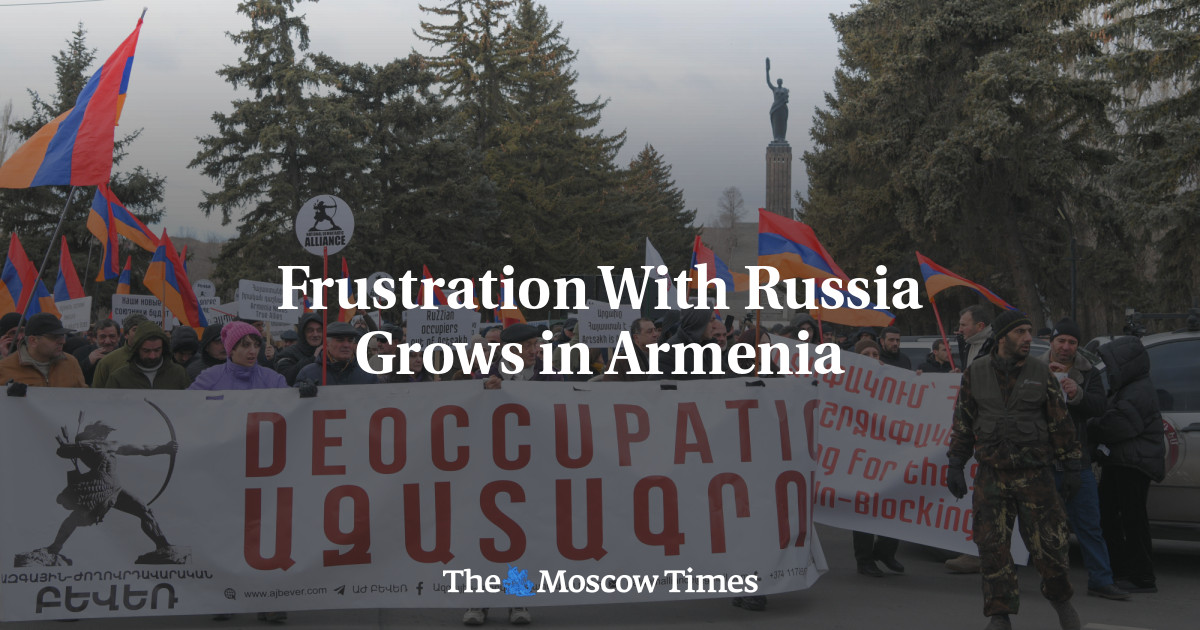
Russia’s invasion of Ukraine has sent shock waves across the former Soviet Union, with Moscow’s traditional partners seeking allies elsewhere.
Armenia, which for decades has relied on Russia for military and economic support and even hosts a Russian military base, serves as a key illustration of Moscow’s diminishing regional influence.
Many in Armenia today say they cannot forgive Russia for shirking its responsibility to defend their country from neighboring Azerbaijan, with whom they have fought two wars for control over the disputed enclave of Nagorno-Karabakh.
The latest conflict between the pair of South Caucasus nations in 2020 led to Armenia’s defeat and the loss of territory it had controlled for years.
During the six weeks of fighting, which claimed thousands of lives, Turkey backed Azerbaijan militarily, while Armenia was left to face a much more powerful enemy on its own.
The Kremlin only intervened diplomatically, with Russian President Vladimir Putin brokering a ceasefire deal and deploying peacekeepers to oversee the fragile truce.
In Armenia, the move was seen as a national humiliation.
The frustration with Moscow has grown deeper after Azerbaijan blocked the sole land corridor between Karabakh and Armenia in mid-December.
Armenian Prime Minister Nikol Pashinyan has openly complained to Putin about “problems” with Russian peacekeepers in Karabakh and appealed to the international community to help prevent “genocide.”
In January, Armenia scrapped plans to host drills for the Collective Security Treaty Organisation (CSTO), a Moscow-led military alliance. But it has so far refused to quit CSTO altogether.
An international arrest warrant for Putin issued in March over the war in Ukraine has added to the tensions between Moscow and Yerevan.
Russia has warned Armenia against ratifying the International Criminal Court’s founding treaty, whose members would be expected to make the arrest if Putin steps foot on their territory.
At the same time, Armenia has seen an influx of tens of thousands of Russians after the Kremlin announced mobilization in September.
But while ordinary Russians are welcome in the country, the mood against Moscow’s elites is palpably changing.
“The overwhelming majority of the Armenian elites are anti-Russian,” said political analyst Hakob Badalyan
But Armenia’s future trajectory is not clear, and many analysts say the small country cannot afford to quit the CSTO.
“Moscow has refrained from taking sides in the conflict out of pragmatic considerations,” independent Russian analyst Konstantin Kalachev said, adding that Russia does not want to hurt its ties with Azerbaijan’s patron Turkey.
“Armenia has nowhere to go in any case.”